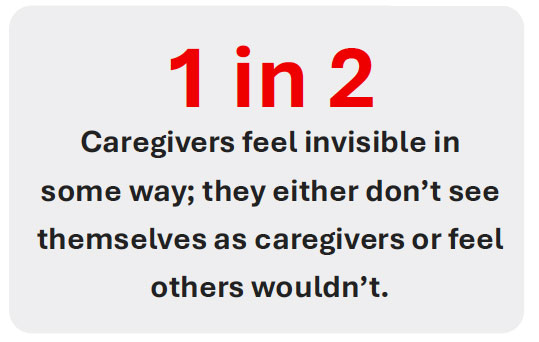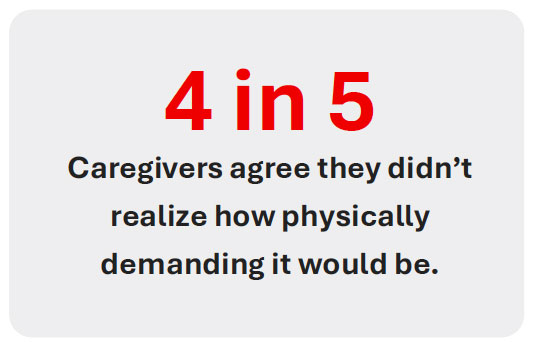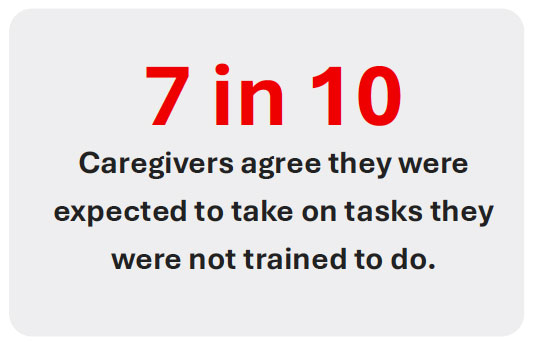The Hidden Toll on Canada’s Invisible Family Caregivers.
Recent research highlights the often unseen and underestimated realities of caregiving in Canada. While nearly two-thirds of Canadians have provided care in some form, half of caregivers feel invisible, either not identifying with the role themselves or believing others wouldn’t. The findings reveal that caregiving is physically and emotionally demanding, with four in five caregivers unprepared for the toll it takes, and seven in ten expected to perform tasks without proper training. Despite widespread recognition of caregiving’s importance, many caregivers continue to navigate their responsibilities without adequate support, visibility, or resources.
Key Findings

1. Caregiving is Widespread but Often Unseen
- About 2 in 3 Canadians have provided some form of care—most often through regular check-ins, emotional support, or help with everyday tasks like cooking and errands.
- Among those who spend at least 15 hours a week on caregiving tasks, the vast majority do so without pay and are referred to as caregivers in this report.
- Nearly half of caregivers feel invisible in some way; they either don’t see themselves as caregivers or feel that others wouldn’t—most commonly because they view it simply as helping a loved one.
2. The Demands of Caregiving Are Underestimated
- Most caregivers were unprepared for the emotional and physical toll. Many report missing social events, leaving work early, making personal sacrifices, and experiencing burnout.
- Nearly 9 in 10 Canadians believe caregiving is more difficult and complex than people realize; however, about 1 in 3 believe caregivers chose the role voluntarily.
3. Many Caregivers Feel Unprepared and Unsupported
- Roughly 2 in 3 caregivers say they didn’t feel prepared when they first took on these responsibilities, and more than half don’t know what resources are available to them for support.
- 7 in 10 say they were expected to take on tasks they weren’t trained for, and fewer than 1 in 3 report having received formal support.
4. Caregiving is Recognized, but Not Fully Understood
- Most Canadians agree caregiving includes more than just medical help or living with someone. Still, 2 in 5 see it as simply “helping out”—including many caregivers themselves.
- While 4 in 5 believe anyone could become a caregiver, only about half would feel emotionally prepared for that possibility, and just 1 in 3 would feel financially ready. Those already providing care would feel somewhat more emotionally prepared.
Leger is the largest Canadian-owned full-service market research firm.An online survey of 2,000 Canadians ages 18+ was completed between August 1-18, 2025, using Leger’s online panel. Leger’s online panel has approximately 400,000 members nationally and has a retention rate of 90 per cent. A probability sample of the same size would yield a margin of error of +/- 2.2 per cent, 19 times out of 20. For the purposes of this survey, Caregivers were defined as Canadians who indicated they regularly do or have done at least one caregiving activity, and spend at least 15 hours per week, without pay, on the activity(ies).






